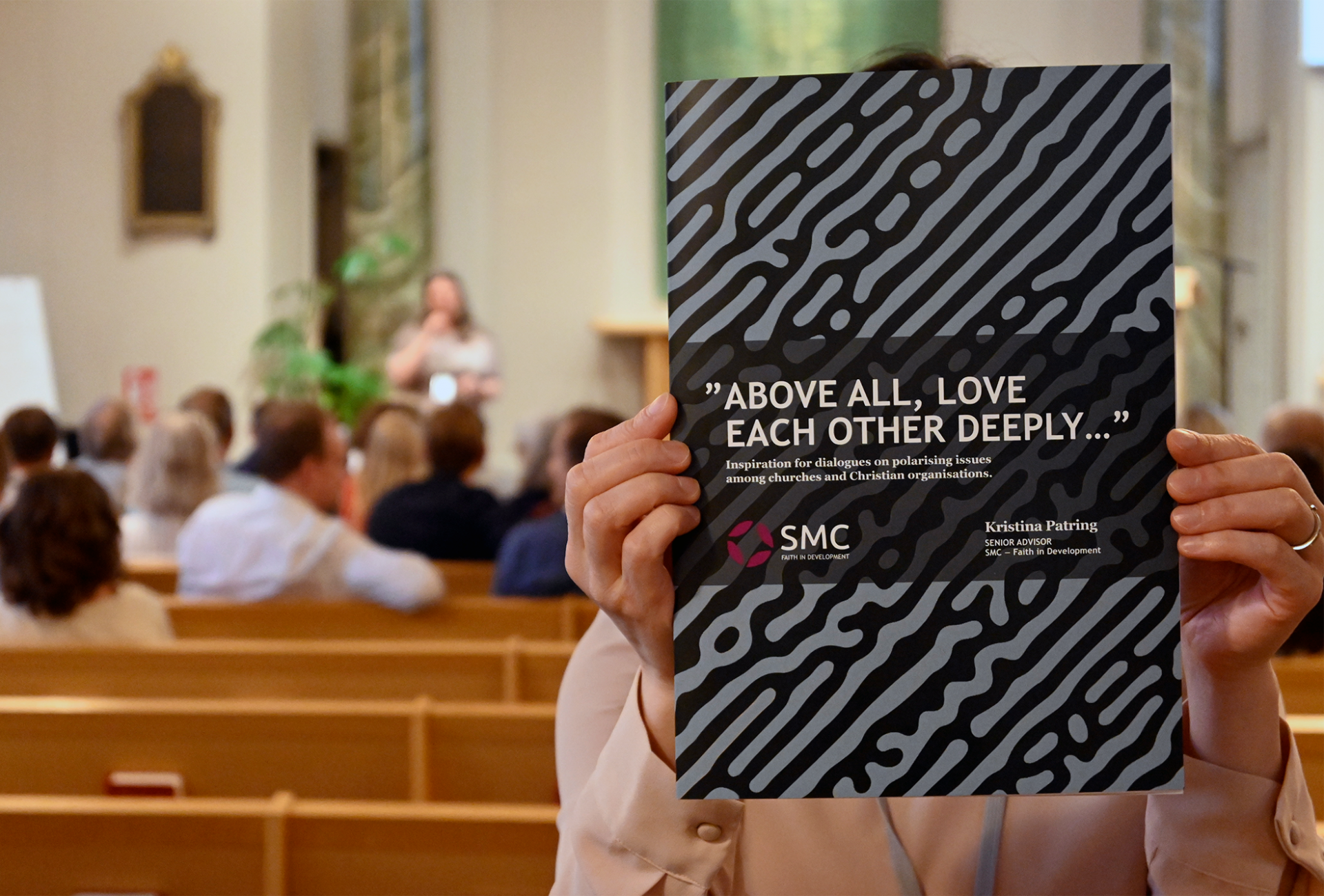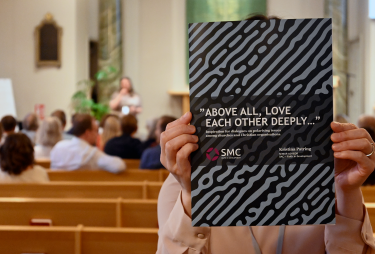Above all, love each other deeply


SMC releases a new resource material aimed at inspiring dialogue on sensitive and polarising issues between Churches and Christian organisations.
The material “Above all, love each other deeply” is primarily written for facilitators and process leaders within Churches and FBOs who want to be inspired or learn from the experience of others regarding the facilitation of such dialogues. It provides an overview of how different church traditions relate to sources of ethical discernment and what goals ethical discernment seems to have throughout the New Testament. “Above all…” also provides advice about what to think about before, during and after a dialogue process on a sensitive issue, also taking SMC’s specific competence in freedom of religion or belief (FORB) and religious literacy into account.
Kristina Patring, advisor on FORB at the SMC and author of the resource material, explains a bit more about the material’s background.
– For more than a decade, we have seen how different human rights areas are positioned against each other and how freedom of religion or belief (FORB) often becomes weaponised by different sides in an increasingly polarised world. At the moment, it does not seem that this trend of polarisation will decrease but rather increase. Unfortunately, neither the church nor Christian faith-based organisations are completely immune to this trend. We too need to practice the skill of dialoguing with, and listening to each other, when we have different opinions on sensitive and polarising issues.
Kristina continues
– During the last three years SMC have had a learning priority about the relationship between FORB and SOGIE rights. This learning journey has given us important insights on how we can stimulate constructive dialogue by e.g. using the method of receptive ecumenism in combination with a human rights-based approach. Conversations within the broad ecumenical reference group we established for theological reflection and sharing of experiences concerning the topic from perspectives of pastoral care and mission theology then inspired the creation of “Above all…” which is written with all forms of polarising issues in mind.
Charlotta Norrby, Secretary General at the SMC, adds
– Throughout the SMC’s more than a hundred-year history, there have been plenty of opportunities for internal dialogues about disagreements. This has taught us that there will always be a need for Christlike conversations where the experience of the other is considered worth listening to. The temptation to avoid difficult conversations completely, or to have them but go separate ways whenever disagreements seem unresolvable, will always be there. The SMC wants to do its best to overbridge polarising positions so that people’s spiritual and physical needs can be met as we live and serve in God’s mission to this world. Therefore, this booklet is written as much to us within the SMC network as to anyone else with an interest in overbridging polarised positions. I believe that conversations about sensitive topics, and polarising issues where we, even though we share the same faith, think differently within or between churches or in partnerships between churches and Christian FBOs, can help us move forward in our missions. Our prayerful wish is to contribute to this kind of constructive engagement.
You can download your copy of “Above all, love each other deeply” here.


Freedom of Religion or Belief
What is freedom of religion or belief?
Freedom of religion or belief is a human right that gives every person the right to have, to change, or to leave his or her religion or belief. We are experts on the right to FORB and offer both courses and online resources free to use for anyone who wishes to learn more.

